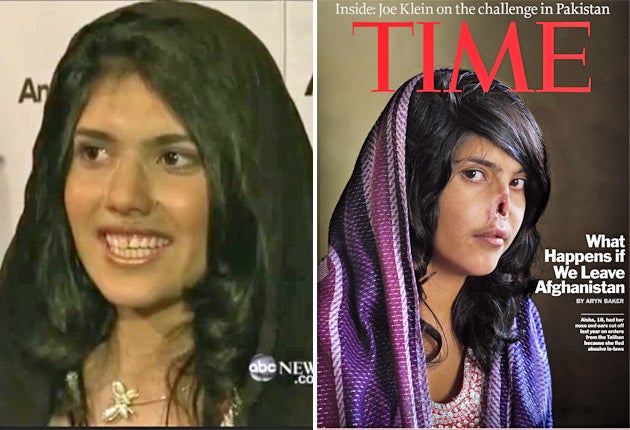New face, and a new smile, for girl who felt the Taliban's wrath

Your support helps us to tell the story
From reproductive rights to climate change to Big Tech, The Independent is on the ground when the story is developing. Whether it's investigating the financials of Elon Musk's pro-Trump PAC or producing our latest documentary, 'The A Word', which shines a light on the American women fighting for reproductive rights, we know how important it is to parse out the facts from the messaging.
At such a critical moment in US history, we need reporters on the ground. Your donation allows us to keep sending journalists to speak to both sides of the story.
The Independent is trusted by Americans across the entire political spectrum. And unlike many other quality news outlets, we choose not to lock Americans out of our reporting and analysis with paywalls. We believe quality journalism should be available to everyone, paid for by those who can afford it.
Your support makes all the difference.An Afghan woman whose ears and nose were cut off by her abusive husband as punishment for running away – and whose mutilated face featured on the front of an international magazine – has undergone extensive plastic surgery.
The 18-year-old, Aisha, was featured by Time magazine in an article that revealed how her husband, a commander in the Taliban, had disfigured her and left her to die.
The magazine also helped arrange for her to travel to the US for the reconstructive surgery.
The young woman displayed her new face at a fund-raising event held in Los Angeles for the Grossman Burn Foundation, which performed eight months of surgery.
She was presented with an "Enduring Heart" award by Maria Shriver, the wife of California's Governor Arnold Schwarzenegger, who told her: "This is the first Enduring Heart award given to a woman whose heart endures and who shows us all what it means to have love and to be the enduring heart."
The young woman replied in English: "Thank you so much."
Aisha, who asked that her family name not be used, was married to a Taliban fighter when she was aged just 12 when she and her sister were handed over in order to settle a family debt according to local custom known as baad. The girls reportedly endured many years of abuse, and were forced to sleep in a stable with the fighter's family's animals.
Aisha was often beaten and her in-laws treated her and her sister like slaves.
Eventually Aisha ran from the house but her husband – who returned from fighting inside Pakistan in order to find her and restore "family honour" – tracked her down in Kandahar. He took her back to Oruzgan district where he lived and on the way he cut off her nose and ears.
Essentially left for dead, she managed to crawl to the house of her uncle but he refused to help her. Eventually a relative took her to a US-operated hospital.
"Aisha is only one example of thousands of girls and women in Afghanistan and throughout the world who are treated this way. Aisha is reminded of that enslavement every time she looks in the mirror," Rebecca Gray Grossman, the foundation's chairwoman, said in a statement. "But there are still times she can laugh. And at that moment you see her teenage spirit escaping a body that has seen a lifetime of injustice."
There is a lot more work ahead for Aisha. Experts say the reconstruction of her mutilated face is to continue and she is to stay on in California with host families who are providing her with accommodation.
The Time magazine cover story was controversial, not least for the accompanying headline that read "What Happens If We Leave Afghanistan".
The image and the article were seized upon by those who wanted to extend the US mission in the country and who were opposed to President Barack Obama's insistence for seeking to fix a deadline for the start of the withdrawal of troops.
Join our commenting forum
Join thought-provoking conversations, follow other Independent readers and see their replies
Comments